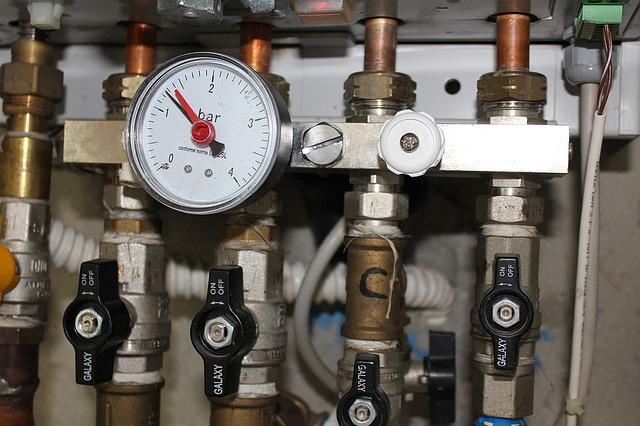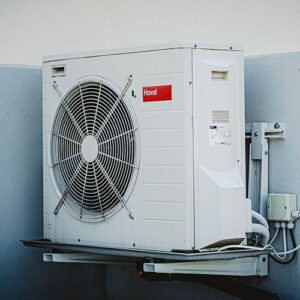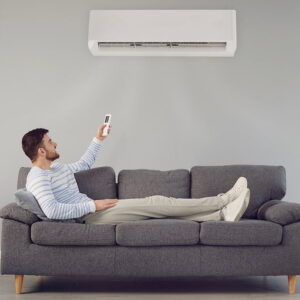Nobody enjoys waiting for hot water, whether they have a new water heater installed or are watching for their heater to recover. How long does it take a hot water heater to heat up? The duration of a water heater’s heating process is one of the most often asked questions as a result. An average tank-style water heater should provide hot water in around 30 minutes, and a tankless device should provide hot water almost instantly.
But in practice, a variety of circumstances play a role. This article will examine various water heater designs and the heating times of each. If you want more information, it will even walk you through the variables that affect how long it takes to heat water.
Table of Contents
About A Hot Water Heater
There are many different types of water heaters: water tank and no water tank, electricity and gas.
The water tank type water heater has a dip tube, which sucks cold water into the water tank. In gas water heaters, this cold water is heated by a flame located in the center of the water tank. This produces exhaust gas, which is pushed over the roof of your house.
The water tank water heater using electricity uses heating elements instead of flames; Their working principle is basically the same, but they do not produce exhaust gas, so they do not need any form of ventilation.
In fact, the working principle of the tank less heater is the same, using flame or electric heat source to heat water. The difference is that they heat water on demand rather than storing it in a tank.
How Long Does It Take A Hot Water Heater To Heat Up?
If you have a storage water heater (with a water tank), the water in the tank will take a while to get hot. But how long does it take to heat the water heater?
You need to know whether you have just installed a new water heater, or just want to know whether your water heater shows its due performance.
Generally speaking, after filling the water tank, hot water can be provided in 30 minutes (gas) to about 1 hour and 20 minutes (electricity).
But there are several factors at work. The size, power supply, first hour delivery rate and recovery rate of the water heater all affect the time you wait for hot water.
Affect Factors For A Hot Water Heater Time
Now that you know that the heating time of the water heater ranges from about half an hour to more than two hours, let’s take a look at the factors that affect the heating time.
Size Of Water Heater
The size, or gallon capacity, of a storage water heater has a lot to do with the speed at which it heats water. Generally speaking, storage water heaters can store about 30 to 80 gallons of water.
Smaller tanks heat water faster (and run out of hot water faster) because fewer gallons can be heated. It’s like heating water in a 2-qt small room. The stew on the stove and a full 12 quarts. Soup pot.
The water in the pan will boil faster. But the heating time of larger containers is not as long as you think. The larger electric models have two heating elements to help with the whole process.
Large capacity gas water heaters have a larger gas burner to help them heat faster. However, if you have a 30 gallon water heater, you won’t wait for it to heat up as long as you have a 50 or 80 gallon water heater.
Cure Rate
The recovery rate of water heater refers to how many gallons of hot water can be provided per hour when in use. It will tell you how fast the water heater restores (aka replenishes) cold water and heats it.
Equipment with high recovery rate can provide hot water faster because of shorter heating time. So even if you use a lot of hot water at one time, a water heater with high recovery rate can quickly heat the cold water coming in.
Power Supply
The power supply (gas or electricity) of the water heater has a lot to do with the time required to heat the water. As we all know, electric water heaters take longer to heat water. This is because the efficiency of using electric heating elements is lower than that of gas burners.
The general 50 gallon gas water heater has a burnup rate of 80 – 90 gallons per hour, while the 50 gallon electric water heater has a burnup rate of 58 – 66 gallons per hour.
The general gas water heater may have to wait 30 minutes to heat all the water in the tank, while the electric water heater has to wait twice as long.
First Hour Delivery Rate
All water heaters have first hour delivery (FHD) ratings. FHD indicates how many gallons of hot water can be provided in an hour when the water heater is full of water. FHD rates are calculated in gallons per hour (GPH).
A high FHD rate means that you will get more hot water faster than a unit with a low FHD rate. For a 50 gallon unit, FHD rates of about 60 to 80 GPH are good.
Type Of Water Heater
Water storage water heaters are those with water tanks, which are used to store and heat water. The water heater without a water tank has no water storage tank and starts heating before the water flows out of the tap.
There is a great difference in the heating time between the two kinds of water. The heating time of the storage water heater ranges from 30 minutes to about one and a half hours.
Water heaters without tanks usually provide hot water immediately. If too much hot water is used at the same time, the flow rate (in gallons per minute) will decrease, but the water flowing out will still be hot.
Initial Water Temperature
The initial water temperature is closely related to the time required for heating a unit. If the inlet water temperature is very low, the water heater must work harder to raise the water to the temperature you choose.
In colder climates, the inlet water temperature is usually about 40 degrees Fahrenheit. In a warmer climate, the temperature is about 50 degrees. It takes time for the water heater to heat the water from 40-50 degrees to 140 degrees.

Other Ways To Speed Up Hot Water
You can consider some additional steps to speed up your hot water supply, including the following steps.
Install a hot water circulation system. This allows water to flow faster from the heater to the faucet. It can also recycle unused hot water back to the water tank. The circulator can be activated by a timer or thermostat, which usually effectively maximizes the efficiency of the water heater.
Upgrade to a tankless model. By definition, tankless water heaters usually provide you with hot water faster than tank water heaters. As tankless water heaters become more common, they also become cheaper. Ask your plumber about some options and the benefits of not using a water tank.
Consider a larger container. Similarly, your problem may be very simple. You have a water tank that can hold two people, but your family has grown to include four to five people. If you want a larger water tank, ask the plumber to list some options.
These are just a few ways you can get better results from your water heater.
Do You Have To Wait That Long Every Time?
no If your storage heater is the right size, you should get hot water immediately instead of waiting. This is especially important if your heater is used every day, because there is usually a lot of hot water used last time in the water tank.
In fact, it is impossible to wait a long time to get hot water from the reservoir. The only time you need to wait is when you use your storage heater for the first time, or if you turn off your heater for several days during a long holiday (more than 3 days). In this case, your heater will not contain hot water, so it will take some time to heat up.
Why Does The Digital Heater Heat Up Faster?
A sensor with a digital heater is installed in the water tank. These sensors monitor the position of hot water in the water tank and quickly push it to the user.
Not all digital heaters are the same. Some are more advanced than others and can provide you with hot water immediately, while others still take a few minutes.
In contrast, the convection process of traditional water tanks is much slower, and it takes longer for hot water to float to the top of the tank and finally be pumped out for use.
How Long For Hot Water To Recover?
Once you run out of water in the water heater tank, the water heater needs some time to replenish. This is called recovery time. (of course, this is only related to the water tank heater, not to the heater without water tank).
There are many factors that affect the recovery time of the water heater. These factors include the size of the water tank, the type of fuel, and the temperature of the water being heated. (of course, it takes longer to heat extremely cold water.)
These are some factors you need to keep in mind when considering your water heater and its performance. Remember, there are almost always options to improve unit efficiency. If you have any questions about the performance of your water heater, we welcome you to contact Carter’s my plumber at any time. We provide water heater maintenance services in Indianapolis, Indiana, Fisher, Carmel, and Greenwood.
Conclusion
One of the most romantic pleasures we may have at home, and depending on the day, anywhere in the world, is taking a hot shower. Unfortunately, our hot water heaters can’t provide a limitless supply of hot water like a magic machine. They need some time to transform the chilly water into the steaming bliss we all love in the showers. Since no two water heaters are alike, it’s crucial to understand how long you will have to wait when their supply runs out. Although their sizes can vary, the most typical size of a water heater is 40 gallons, so we use that measurement here when discussing how quickly they operate. The time it takes to heat up the water increases with heater size.





